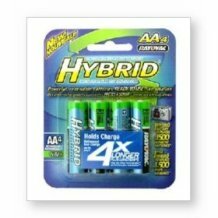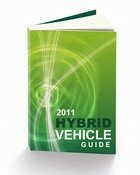No Hybrid Batteries Means No Hybrid Cars

Why the hybrid market isn’t doing as well as it should
It’s no secret that hybrid cars are a great buy these days. As gas prices skyrocket, reaching new “record highs” each day, more and more people are rushing to their nearest car dealership and scrambling for hybrids. Demand is high and there should be more hybrids on the roads than ever before.
But, even though sales of hybrids are brisk and represent a growing percentage of auto manufacturers’ sales, the car companies just aren’t selling as many as they could. Why? The answer is two-fold: a) contracts that prohibit increased production of hybrid batteries and b) a shortage of the plants that are able to make the nickel-metal-hydride batteries.
How big is the market?
According to an article in Time, standard vehicle sales are at an all-time low compared to the rising sales of hybrids. Hummer is hurting GM, Ford’s trucks and SUVs have seen sluggish sales, and even Toyota’s Pruis’ sales have slowed – but for different reasons. With gas prices shooting up and the environmental vibe sinking deeper into our collective consciousness, it makes sense that no one wants a big, clunky gas-guzzler anymore. So, why did the Prius’ sales slow as well? It’s because demand has exceeded supply and now those in the market for a Pruis are putting their names on waiting lists of six months or longer.
Resources
This 2004 USAToday article didn’t get everything right, but it did correctly predict the current shortage of nickel-metal-hydride batteries. The article discusses how just a few plants are expected to keep up with the increasing demand for hybrid car batteries. Although the market for hybrids has grown in the past few years and particularly the past few months, new production facilities for the batteries are not expected to be ready to work until 2010. This has the auto manufactures scrambling for ownership of battery production facilities so that they can feed the demand. Ultimately, though, car buyers will most likely experience this crunch in supply until the new battery facilities are operational.
The contract issue
Building the specialty batteries needed to keep a hybrid running is a niche market and very few plants have the ability to produce them. On top of that, auto companies have delicately balanced contracts with the battery producers to insure the best final cost and profit. With a sudden and dramatic rise in demand for hybrid cars and thus the nickel-metal-hydride batteries, the contracts have no wiggle-room and so the needed batteries are not being produced.
So, when might the hybrid vehicle battery problem be fixed? Based on everything I’ve read, it’s not going to be any time soon. In fact, it might be well into 2009 before we start to see some relief. And with the most popular hybrid car (Prius) undergoing a major overhaul for next year (2009 Prius changes), including a different battery than the 2008 model, we can only hope that Toyota is planning to place a much larger order for them - before it’s too late. Maybe it’s time to buy some stock in hybrid battery manufacturers.




















Comment by Jason on 14 September 2008:
That’s not the only thing…. the answer is three fold; price. Yes I realize that the prius is only starting at 21k, but the fact is, with the way the economy is, some of us cant afford it.